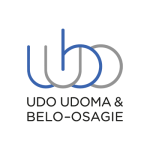Onyinye Okafor, Joseph Eimunjeze and Adedolapo Akinola of Udo Udoma & Belo-Osagie review the efforts being made to modernise the corporate finance sector and encourage activity
The growth and development of the Nigerian economy are largely dependent on the volume of investments and commercial activities that take place in the country. Due to the current state of the economy, that is, inadequate infrastructure, growing population and unemployment rates and the limited resources available to both public and private institutions, a sizeable level of corporate financing is required to fund the commercial activities of Nigerian corporate entities as well as increase the delivery of the much-needed infrastructure for rapid socio-economic development by the Nigerian government.
In order to achieve these desired socio-economic and commercial outcomes, the various players in the Nigerian economy, including the government and its agencies, will need to raise funds – through several channels locally and internationally. There is also a need for increased foreign direct investment (FDI) in the economy. In raising capital, we believe that the active players in the economy should consider various forms of funding, which include: debt funding from Nigerian and foreign commercial banks, development finance institutions, private equity funds and debt capital markets; and equity funding from investors and the equity capital markets.
There has been rapid development in the corporate finance space in Nigeria. To increase the level of economic activity in the country, the Central Bank of Nigeria (CBN), Securities and Exchange Commission (SEC) and other relevant regulators have introduced various guidelines and regulations which apply to the raising of funds by Nigerian companies and government institutions. These regulations are aimed at protecting members of the public involved in financing activities (such as investors in debt instruments and borrowers from banks) and safeguarding the financing landscape in Nigeria. This has substantially increased investors' confidence in the Nigerian market, which has, in turn, broadened the opportunities available to Nigerian entities seeking to access local and foreign financing. Furthermore, the existence of free trade zones and the tax benefits available in these zones have provided additional incentives for investors to set up operations in such zones.
Recent developments
There are several important recent developments in the Nigerian market which have had a positive impact on the corporate finance space.
The first pertains to electronic certificates of capital importation. Investors bringing foreign capital into Nigeria for debt or equity investments are required to obtain a document called a Certificate of Capital Importation (CCI). A CCI serves as evidence that foreign capital was brought into Nigeria for investment and guarantees the investor the unconditional transferability of the proceeds from an investment out of Nigeria. The certificate is required to be issued within 24 hours of the capital coming into Nigeria (subject to the parties providing the appropriate documents to the Nigerian bank through which the capital was brought in) and conversion into the local currency – the naira. If the capital is in the form of plant, machinery and equipment, the CCI will be issued within 24 hours of submission of final shipping and other relevant documents.
The CCI used to be issued in physical form but the CBN recently phased that out and replaced it with electronic CCIs. The CBN has automated the process for the issuance of CCIs electronically on the eCCI platform – a platform managed by the CBN. In 2016, the CBN directed Nigerian banks to migrate all existing and active physical CCIs to electronic-CCIs and this process was completed last year. Given that the window allowed by the CBN for migration has passed, any investor still holding a physical CCI will now require the approval of the CBN to dematerialise it. Going forward, following the phasing out of the issuance of physical CCIs, CCIs can only be issued electronically on the eCCI platform.
In addition to migrating to the eCCI, the CBN now requires first-time investors importing foreign capital into Nigeria to register with the CBN and obtain a transfer code. This registration is required to be effected by the Nigerian bank through which the foreign capital is brought into Nigeria, and each investor is entitled to a single non-transferable transfer code. The CBN introduced this process to make the administration of the CCI regime seamless and more transparent.
|
|
Non-Nigerian institutions are permitted to lend to entities in Nigeria on a cross-border basis without any licence requirement |
|
|
A second development has been the establishment of the National Collateral Registry (NCR). As part of efforts to encourage lending to micro, small and medium-scale enterprises (MSMEs) and to enable these entities to use their moveable assets (tangible and intangible) as security, the Nigerian government recently enacted the Secured Transactions in Moveable Assets Act. The Act establishes the NCR domiciled in the CBN, where security interests in moveable assets created by an agreement are required to be registered. The NCR is an online registry managed by the CBN, which means that the filing and registration of security documents can only be carried out electronically. The registry is currently only accessible to Nigerian banks as secured creditors. Any other secured creditor is, however, permitted to register with the NCR as a client/user, which will enable it to register its security.
In an effort to facilitate the financing of trade and direct investment between counterparties in China and Nigeria and to maintain the stability of the Nigerian financial market, Nigeria entered into a naira-Chinese yuan (CNY) currency swap arrangement with China. In do this, the CBN issued regulations to give effect to these arrangements. The swap arrangement allows Nigerian banks to make liquidity in these currencies available for the facilitation and promotion of trade and direct investments across the two nations through the purchase, sale and subsequent repurchase and resale of the CNY against the naira and vice versa. The bilateral arrangement is for a term of three years. To prevent market abuse, foreign exchange purchased in the window cannot be used to pay for transactions in which the beneficiaries are not based in China and the sale of CNY is only for trade-backed transactions. It is yet to be seen how this arrangement has increased corporate finance activities in Nigeria between Nigerian borrowers and Chinese lenders.
A fourth notable development is that the CBN, in its bid to enhance the provision of credit to the agricultural and manufacturing sectors of the Nigerian economy, introduced the Real Sector Support Facility. The Facility can be accessed either through a cash reserves requirement (CRR) by commercial banks, or the issuance of corporate bonds. The guideline introducing the Facility will, among other things, permit commercial banks that are interested in providing credit financing to greenfield and brownfield projects in the agricultural and manufacturing sectors to request the CBN to release funds to them from their respective CRR to finance eligible projects (subject to a maximum of NGN10 billion – $28 million – per project); and encourage eligible companies to issue long-term bonds in which the CBN, all financial institutions and the general public can invest. The minimum term for the financing provided through the CRR and the bonds is seven years. While the CRR has a two-year moratorium, the guidelines specify that the moratorium in relation to the bonds will be as provided in the relevant prospectus for the bonds. The all-in interest rate/charges shall be a maximum of 9% per annum. The CBN introduced the Facility as a means of ensuring that agricultural and manufacturing companies obtain long term financing at a single-digit interest rate.
Cross-border corporate finance
One interesting aspect of the Nigerian legal system is that non-Nigerian institutions (banks and non-banks) are permitted to lend to entities in Nigeria on a cross-border basis without any licence requirement. We have seen various offshore institutions take advantage of this to lend to Nigerian corporates and governments. Those offshore institutions can also take direct security in their names in Nigeria, except for security interest created over real estate and insurance policies, where they can use a Nigerian security trustee to hold the security interest for their benefit. Interest payments on their loans are liable to a withholding tax at the rate of 10%, which can be reduced to 7.5% if the recipient is resident in a country with which Nigeria has entered into a double taxation agreement. Nigeria currently has effective double taxation agreements with Belgium, Canada, China, Czech Republic, France, the Netherlands, Pakistan, Philippines, Romania, Slovakia, Spain, South Africa and the UK. The tax withheld, when remitted to the FIRS, will be the final tax due on that income in Nigeria.
We have also seen private equity (PE) firms providing direct credit to Nigerian entities instead of the usual investment in equity. This is a welcome development as Nigerian entities are now able to obtain the necessary financing without the need to dilute the equity holding of their existing shareholders. Such PE firms take advantage of the flexible lending regime in Nigeria to provide facilities to institutions where the PE firms are already equity holders by way of shareholder loans, or to new institutions in which they intend to invest. PE loans are also convertible into equity, subject to prescribed conditions being satisfied or met.
Fintech
There has been a positive development in the corporate finance space with the establishment of various fintech companies in Nigeria that provide funding to MSMEs. We have seen several local and offshore fintech companies providing secured and unsecured financing to entities in Nigeria. This is a significant development given that there is currently no robust regulatory framework that directly applies to fintech operators. Where fintech institutions grant secured facilities to MSMEs, such security includes mortgages, all assets debentures, fixed and floating charges, pledges and assignment by way of security in respect of movable and immovable assets.
|
|
The Bill will also reduce the cost of taking security in Nigeria and will introduce netting provisions |
|
|
Like fintech institutions, there has also been a significant increase in the volume of lending by development financial institutions to Nigerian corporates. This type of lending has mostly been to companies operating in the financial services sector and fast-moving consumer goods sector and reflects increasing investor confidence in the Nigerian economy.
Free trade zones, corporate bonds and security
Nigeria has robust legislation and regulation that regulate companies operating in its free trade zones (FTZ). Non-Nigerian companies are permitted to register and operate in a FTZ without first incorporating a separate Nigerian company as required under our companies' law, while existing Nigerian companies may also operate in the zone provided that they register an entity in the zone. There is an increasing awareness of the advantages of setting up entities in a FTZ in Nigeria and we have seen significant interest by lenders that wish to lend to institutions set up in such zones. What may be responsible for this is that FTZ entities are entitled to various incentives, such as exemptions from all legislation and regulations in respect of taxes, duties and foreign exchange regulations. In addition, the shares of an entity in a FTZ can be used as security for any debt or other obligation incurred or to be incurred.
There has also been a significant increase in local bonds issuances in Nigeria in recent times. Several Nigerian corporates (banks and non-banks) have set up bond issuance programmes to raise funds from the Nigerian capital markets to finance their operations. In addition, the Nigerian government has issued debt instruments in the local market to finance key capital developments, such as road infrastructure. For instance, the Nigerian government recently concluded a sukuk bond issuance, which was oversubscribed, to fund road projects in various parts of the country. Two supranational finance organisations recently established naira bond issuance programmes and a third is working on one which will be completed soon. This again shows increased investor confidence in Nigeria.
When it comes to enforcing security, creditors are generally able to enforce their security interest without any restriction. This is one of the incentives for corporate finance in Nigeria, as many of the security arrangements in Nigeria can be enforced by the security holder without necessarily going through the courts, particularly if the security agreements include provisions dealing with enforcement rights. Instances of this include charges over bank accounts, charges over shares and security over receivables. Where the security interest is a legal mortgage, it can be enforced without recourse to the courts, however, equitable mortgages are generally enforced through the courts. Although Nigerian courts are generally becoming creditor-friendly in relation to the enforcement of security, a borrower that disputes the enforcement of security could delay the enforcement by taking pre-emptive steps to stop or frustrate such an action.
And the reforms keep coming
The Nigerian legislature recently passed the Companies and Allied Matters Act (Repeal and Re-enactment) Bill, which has been sent to the President for his assent. The Bill will repeal the existing Companies Law which was enacted in 1990. If the President gives his assent, the Bill will introduce significant changes to the existing provisions on registration of security, which will make it easier for companies to use their assets as security for loans. The Bill will also reduce the cost of taking security in Nigeria and will introduce netting provisions which will encourage derivatives transactions in Nigeria. If the Bill is assented to by the President, it will be a major milestone in the corporate finance eco-system in Nigeria.
About the author |
||

|
|
Onyinye Okafor Partner, Udo Udoma & Belo-Osagie Lagos, Nigeria T: +234 1 4622307-1 W: www.uubo.org Onyinye Okafor is a partner in the firm's banking and finance as well the corporate advisory teams. Her specialisations include corporate and project finance, banking, debt restructuring, derivatives and structured finance, trade finance, capital markets, and insolvency. She has been involved in the structuring and financing of various projects and advises international and local financial institutions on a day-to-day basis on issues concerning the creation and perfection of security, foreign exchange issues, the enforceability of close-out netting under the applicable netting agreement and the related collateral arrangements. She is familiar with the documentation requirements for the implementation of financing arrangements. She has written various articles on cross-border finance and she also facilitates training sessions on credit and security. |
About the author |
||

|
|
Joseph Eimunjeze Managing associate, Udo Udoma & Belo-Osagie Lagos, Nigeria T: +234 1 4622307-10 W: www.uubo.org Joseph Eimunjeze is a managing associate in the firm's banking and finance, tax, and corporate advisory teams. His specialisations include securities offerings and derivatives transactions, debt restructuring, foreign investments and debt-to-equity conversions. Joseph has advised, and continues to advise, a wide range of local and international clients (which include banks and other financial institutions, capital market operators, oil and gas companies, telecommunication companies, and private equity firms) on diverse financing arrangements including bilateral and syndicated lending and issuance of debt instruments by Nigerian government and corporates locally and internationally. He has facilitated several training sessions in banking, securities and tax. Joseph has published articles in several aspects of the firm's practice areas. He is an associate member of the Chartered Institute of Taxation of Nigeria and is currently a representative Capital Market Solicitors on the Securities and Exchange Commission ISDA Workgroup working on ways and means to deepen the use, growth and development of derivatives transactions in the Nigerian financial market. |
About the author |
||

|
|
Adedolapo Akinola Associate, Udo Udoma & Belo-Osagie Lagos, Nigeria T: +234 1 4622307-10 W: www.uubo.org Adedolapo Akinola is an associate in the firm's banking and finance, general corporate advisory and capital markets teams. Adedolapo has advised various financing transactions involving development finance institutions such as the International Finance Corporation, the Africa Finance Corporation and the African Development Bank. She also advises corporate investors such as local and foreign commercial banks and private equity firms on their debt and equity investments in Nigeria. Adedolapo was part of the team that advised ARMHIF, Nigeria's first indigenously developed and managed infrastructure fund and the first infrastructure fund in which Nigerian pension funds made investment commitments. |


